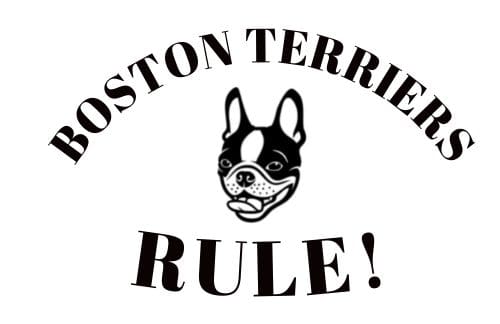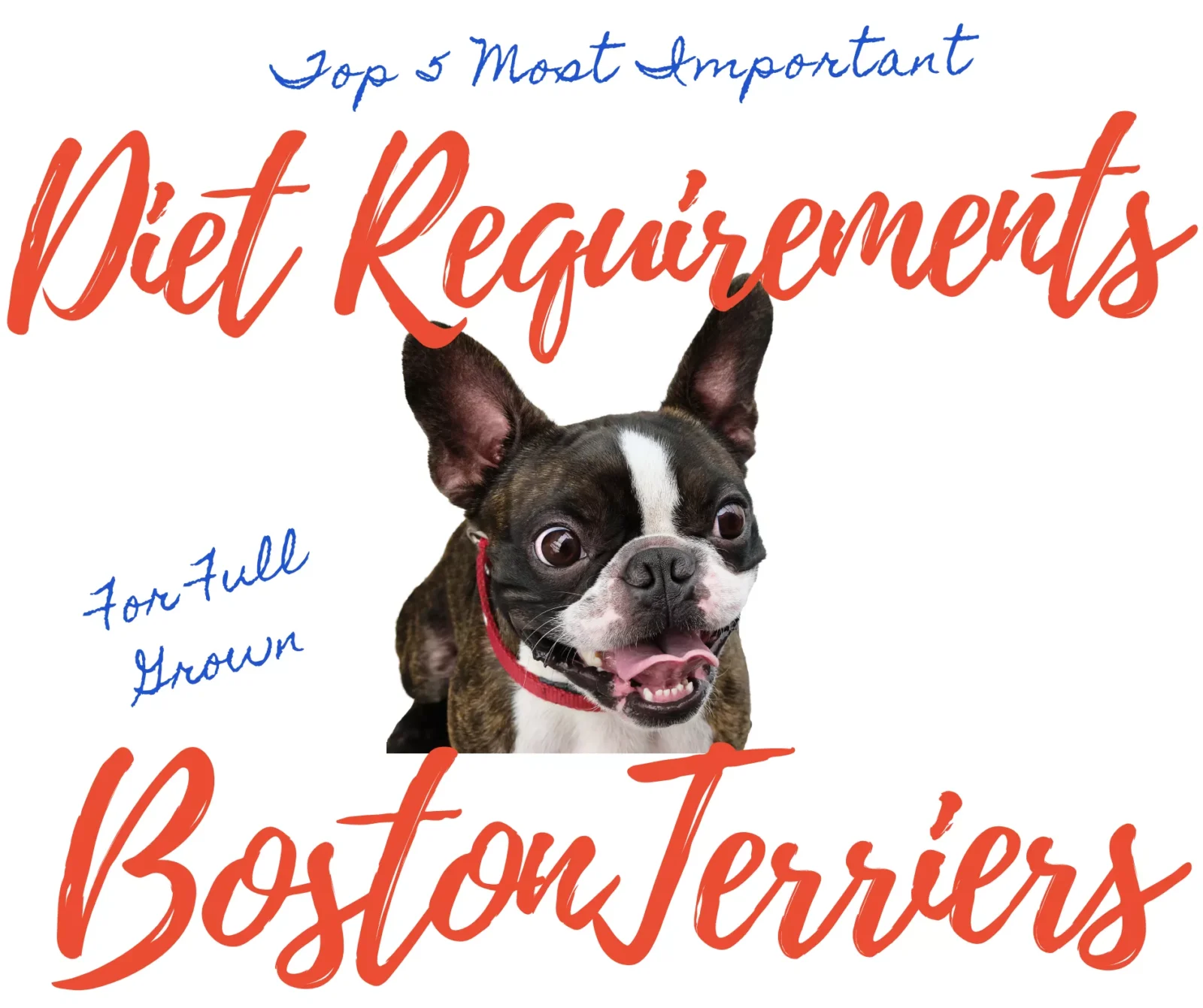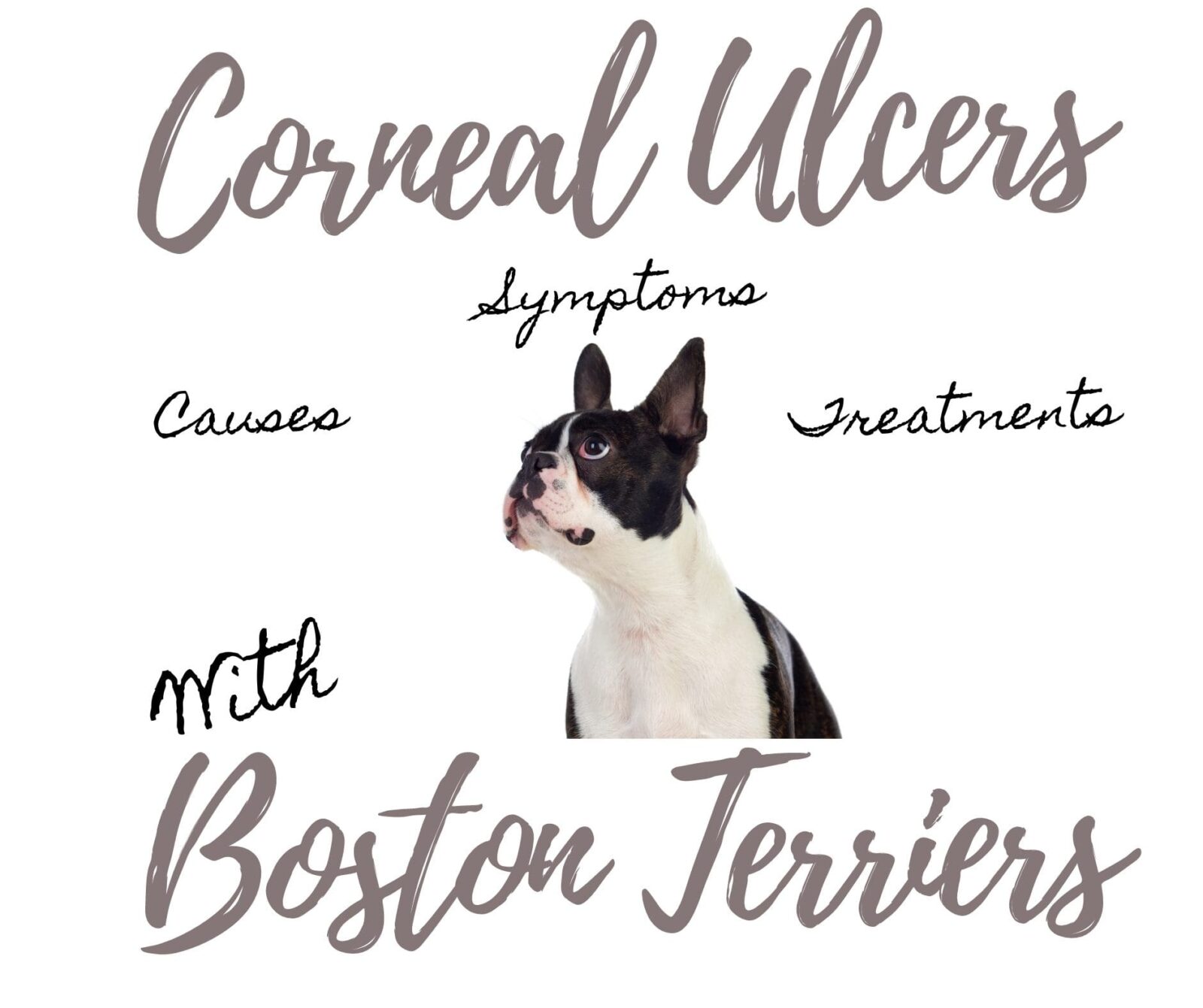Introduction:
Boston Terriers, are not just beloved companions but also deserve meticulous care, especially when it comes to their dietary requirements. Proper nutrition plays a pivotal role in ensuring the overall health, vitality, and longevity of these compact and energetic dogs.
In this comprehensive guide, we will discuss the specific dietary requirements of adult Boston Terriers, covering everything from essential nutrients to feeding schedules and potential health concerns. Click here to read about Boston Terrier Diet Needs for All Life Stages.

Understanding the Top 5 Nutrition Needs of Adult Boston Terriers:
Protein Requirements:
Boston Terriers, like many other breeds, thrive on a diet rich in high-quality proteins. Protein is crucial for muscle maintenance, tissue repair, and overall growth. Look for dog foods that list a high-quality protein source, such as chicken, turkey, or fish, as the primary ingredient.
Balanced Fat Intake:
Adequate fat intake is essential for maintaining a Boston Terrier’s energy levels and promoting healthy skin and coat. Opt for dog foods with moderate levels of healthy fats, sourced from sources like fish oil or chicken fat. Be cautious about excessive fat content, as Boston Terriers are prone to obesity.
Carbohydrates for Energy:
Carbohydrates serve as a primary energy source for dogs. Boston Terriers benefit from diets that include easily digestible carbohydrates like sweet potatoes or brown rice. Avoid foods with excessive filler ingredients, and prioritize complex carbohydrates for sustained energy.
Vitamins and Minerals:
Essential vitamins and minerals play a crucial role in supporting various bodily functions. Ensure that your Boston Terrier’s diet includes a spectrum of vitamins like A, D, E, and B-complex, as well as minerals such as calcium and phosphorus for bone health.
Water:
Adequate hydration is vital for Boston Terriers, especially considering their predisposition to respiratory issues. Always provide access to fresh, clean water and monitor their water intake, especially during warmer months or after physical activity.

Choosing the Right Dog Food:
Commercial vs. Homemade Diets:
While high-quality commercial dog food is formulated to meet the nutritional needs of dogs, some owners prefer preparing homemade meals. If opting for a homemade diet, consult with a veterinarian or canine nutritionist to ensure it meets your Boston Terrier’s specific requirements. Click here to read about human power foods that your Boston Terrier can benefit from.
Quality Ingredients:
Prioritize dog foods with real meat as the primary ingredient, avoiding those with excessive fillers, by-products, or artificial additives. Opt for brands known for their commitment to quality and transparency in ingredient sourcing.

Feeding Schedule and Portion Control:
Meal Frequency: Adult Boston Terriers typically thrive on two meals per day. However, individual factors such as age, activity level, and health status may influence the ideal feeding frequency. Discuss the best feeding schedule with your veterinarian to suit your dog’s needs.
Portion Control:
Boston Terriers are prone to obesity, which can lead to various health issues. Establish a feeding routine with controlled portions to maintain a healthy weight. Consult your veterinarian to determine the appropriate daily caloric intake for your individual dog.
Understanding the Risks of Obesity:
Boston Terriers, characterized by their compact yet muscular build, are predisposed to weight gain. Obesity in these charming dogs can lead to a range of health issues, including but not limited to respiratory problems, joint strain, and a higher risk of conditions like diabetes and heart disease. Therefore, implementing an effective portion control strategy is crucial for maintaining their overall health and well-being.
Customized Caloric Intake:
Establishing the right portion size for your Boston Terrier involves more than just guesswork. Consultation with your veterinarian is essential to determine the appropriate daily caloric intake based on your dog’s age, activity level, metabolism, and overall health. Each Boston Terrier is an individual with unique needs, and a customized feeding plan ensures that they receive the nutrition necessary for their specific circumstances.
Adjusting Portions with Age and Activity:
As Boston Terriers age or experience changes in their activity level, their nutritional needs may also evolve. Puppies, adult dogs, and seniors have distinct requirements, and it’s crucial to adjust portion sizes accordingly. Highly active dogs may need more calories to support their energy expenditure, while seniors may benefit from a more weight-conscious approach to prevent unnecessary strain on aging joints.
The Dangers of Overfeeding:
Overfeeding is a common pitfall that can lead to weight gain in Boston Terriers. While their expressive eyes may beg for extra treats, it’s essential to resist the temptation. Excessive caloric intake can quickly result in obesity, negatively impacting their quality of life and potentially shortening their lifespan. Be mindful of treats, as they contribute to overall caloric intake and should be factored into the daily feeding plan.
Monitoring and Adjusting:
Regular monitoring of your Boston Terrier’s weight and body condition is vital. Adjust portion sizes as needed based on changes in weight and overall health. If you notice your dog gaining or losing weight unexpectedly, consult your veterinarian promptly to rule out underlying health issues and modify the feeding plan accordingly.

Health Considerations:
Food Allergies:
Some Boston Terriers may have sensitivities or allergies to certain ingredients. Monitor your dog for signs of allergies, including itching, digestive upset, or changes in behavior. If you suspect an allergy, consult your veterinarian for guidance on an elimination diet. Click here to read an in-depth article on Boston Terrier Food Allergies.
Weight Management:
Maintaining a healthy weight is crucial for Boston Terriers to prevent strain on their joints and reduce the risk of obesity-related issues. Regular exercise, portion control, and a balanced diet contribute to effective weight management.
Common Health Issues:
Boston Terriers are prone to certain health issues, such as respiratory problems and sensitive skin. Tailoring their diet to include ingredients that support respiratory health and promote skin and coat health is essential.

Harnessing the Power of Omega-3 Fatty Acids for Boston Terrier Wellness
Omega-3 Fatty Acids:
Omega-3 fatty acids, commonly found in fish oil supplements, support skin health, reduce inflammation, and contribute to a glossy coat. Consult your veterinarian for the appropriate dosage for your Boston Terrier.
Understanding the Role of Omega-3 Fatty Acids:
Omega-3 fatty acids are a category of essential nutrients that play a pivotal role in maintaining optimal health, and for Boston Terriers, their benefits extend far beyond what meets the eye. These fatty acids, particularly eicosapentaenoic acid (EPA) and docosahexaenoic acid (DHA), are crucial for various physiological functions, making them an invaluable addition to your Boston Terrier’s nutritional regimen.
Skin Health and Coat Radiance:
One of the standout benefits of incorporating omega-3 fatty acids into your Boston Terrier’s diet is their profound impact on skin health and coat radiance. Boston Terriers are known for their sleek, short coats, and omega-3s contribute to the maintenance of healthy skin, preventing issues like dryness and flakiness. The result is a shiny, lustrous coat that not only enhances their appearance but also serves as an indicator of overall well-being.
Anti-Inflammatory Properties:
Omega-3 fatty acids are renowned for their potent anti-inflammatory properties. Inflammation, while a natural response to injury or infection, can become chronic and contribute to various health issues in dogs, including joint problems and certain skin conditions. By incorporating omega-3s into your Boston Terrier’s diet, you can help mitigate inflammation, supporting joint health and overall mobility.
Supporting Cognitive Function:
The benefits of omega-3 fatty acids extend beyond the physical, reaching into the realm of cognitive health. DHA, a specific type of omega-3, is a key component of brain tissue and plays a crucial role in cognitive development and function. Including omega-3s in your Boston Terrier’s diet can contribute to mental sharpness and overall cognitive well-being, especially in aging dogs.
Heart Health and Immune Support:
The cardiovascular benefits of omega-3 fatty acids are well-established. These healthy fats promote heart health by supporting proper blood circulation and maintaining optimal cholesterol levels. Additionally, omega-3s contribute to a robust immune system, helping your Boston Terrier ward off infections and illnesses.
Choosing the Right Source:
While omega-3 fatty acids can be derived from various sources, including flaxseed and chia seeds, fish oil remains a popular and potent choice for Boston Terriers. Fish oil supplements provide a concentrated and bioavailable source of EPA and DHA, ensuring that your dog receives the maximum benefits. When selecting a fish oil supplement, opt for high-quality products and consult your veterinarian to determine the appropriate dosage based on your Boston Terrier’s unique health profile.
Consulting Your Veterinarian:
Determining the right dosage of omega-3 fatty acids for your Boston Terrier should be a collaborative effort between you and your veterinarian. Factors such as age, existing health conditions, and dietary considerations all play a role in establishing the optimal supplementation plan. Your veterinarian can provide tailored advice, ensuring that your Boston Terrier receives the precise amount of omega-3s needed to support their health and vitality.
In conclusion, incorporating omega-3 fatty acids into your Boston Terrier’s diet is a proactive step toward enhancing their overall well-being. From skin and coat health to cognitive function and immune support, these essential fatty acids offer a holistic approach to canine nutrition. By prioritizing omega-3 supplementation and working closely with your veterinarian, you empower your Boston Terrier to thrive in every aspect of their health journey.

Nurturing Joint Health in Boston Terriers
The Importance of Joint Health:
As Boston Terriers gracefully age, their joints may become susceptible to wear and tear, potentially leading to conditions like osteoarthritis. To proactively address and support joint health, considering the inclusion of joint supplements in their dietary regimen becomes paramount. These supplements often contain key ingredients such as glucosamine and chondroitin, which are renowned for their role in promoting joint flexibility and mitigating the impact of age-related joint issues.
Understanding Glucosamine and Chondroitin:
1. Glucosamine:
- Natural Joint Support: Glucosamine is a naturally occurring compound in the body, playing a crucial role in the formation and repair of cartilage. Cartilage acts as a cushion between bones, providing essential support for smooth joint function.
- Anti-Inflammatory Properties: Glucosamine’s anti-inflammatory properties make it an invaluable component in joint supplements. By helping to reduce inflammation in the joints, glucosamine contributes to enhanced mobility and comfort for aging Boston Terriers.
2. Chondroitin:
- Cartilage Maintenance: Chondroitin, another essential component of joint supplements, works synergistically with glucosamine. It helps maintain the structural integrity of cartilage, supporting its ability to withstand the stress placed on joints during movement.
- Hydration and Elasticity: Chondroitin aids in the retention of water within cartilage, promoting hydration and elasticity. This is vital for joint resilience and the prevention of stiffness or discomfort.
Benefits of Joint Supplements:
1. Mitigating Osteoarthritis Symptoms:
- Pain Management: Osteoarthritis, a common condition in aging dogs, can lead to joint pain and stiffness. Joint supplements help manage these symptoms, improving overall comfort and mobility for Boston Terriers experiencing the effects of arthritis.
2. Supporting Joint Flexibility:
- Enhanced Range of Motion: The combination of glucosamine and chondroitin contributes to increased joint flexibility. This is particularly beneficial for Boston Terriers that may experience limitations in their range of motion due to aging or joint conditions.
3. Preventative Approach:
- Early Intervention: Introducing joint supplements at an earlier stage, preferably before the onset of significant joint issues, serves as a preventative measure. This proactive approach aims to maintain joint health and reduce the likelihood of age-related joint problems.
Consulting Your Veterinarian:
While joint supplements offer promising benefits, it’s crucial to consult with your veterinarian before incorporating any new supplements into your Boston Terrier’s diet. Veterinarians can assess your dog’s specific health needs, considering factors such as age, weight, and existing health conditions, to recommend the most suitable joint supplement and dosage.
Choosing Quality Supplements:
When selecting joint supplements, opt for high-quality products that undergo rigorous testing for purity and effectiveness. Your veterinarian can guide you in choosing reputable brands that prioritize the well-being of your Boston Terrier.
In summary, joint supplements containing glucosamine and chondroitin play a pivotal role in promoting joint health for Boston Terriers, especially as they age. By embracing a proactive approach to joint care and collaborating closely with your veterinarian, you empower your beloved companion to navigate their senior years with vitality and comfort.

Conclusion:
Optimizing the nutrition of your adult Boston Terrier is a fundamental aspect of responsible pet ownership. By understanding their specific dietary requirements, choosing high-quality dog food, establishing a proper feeding schedule, and addressing potential health considerations, you can contribute to the overall well-being and happiness of your loving Boston Terrier.
Remember, individual needs may vary, so regular communication with your veterinarian is key to tailoring a nutrition plan that suits your Boston Terrier’s unique requirements.

This post contains affiliate links. I earn from qualifying Amazon purchases.




